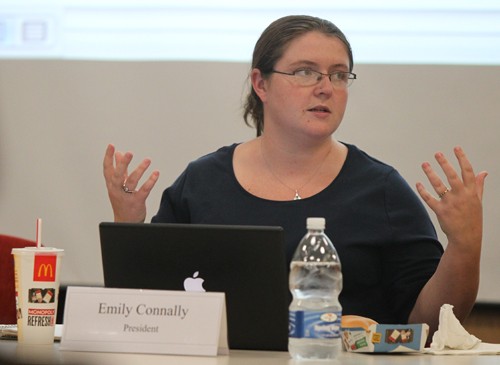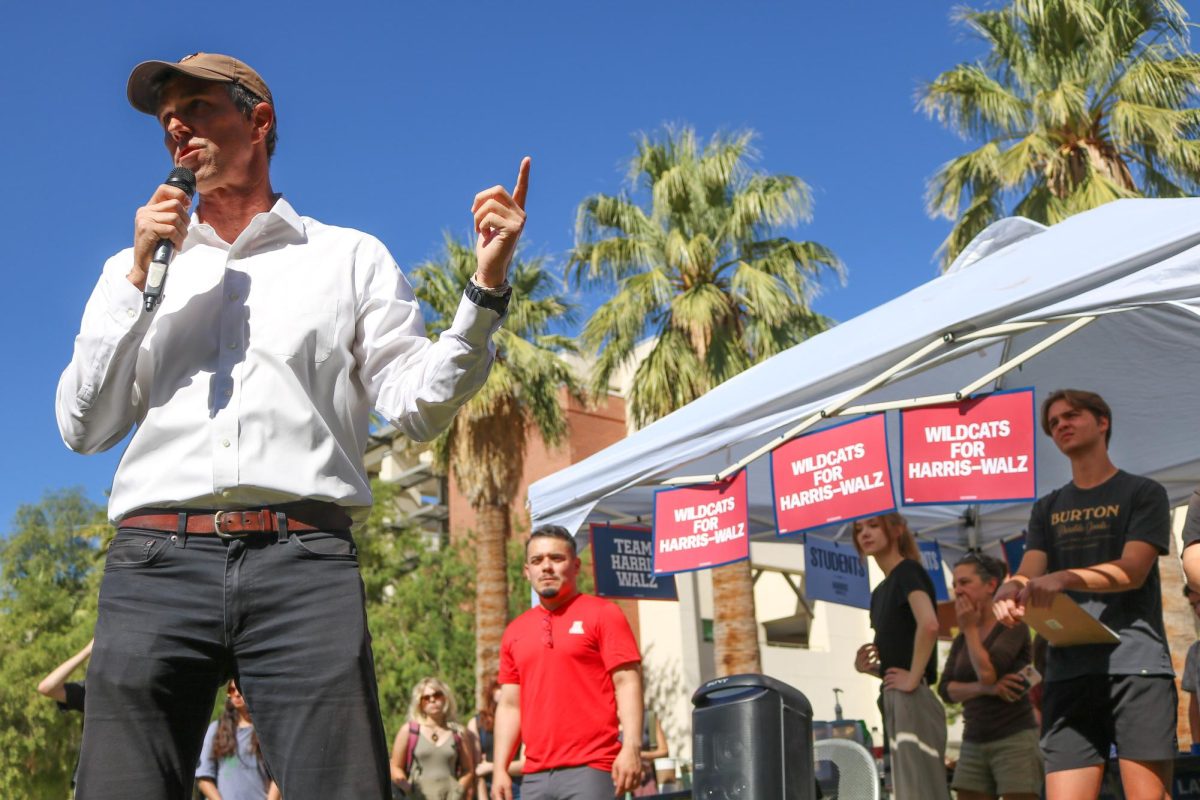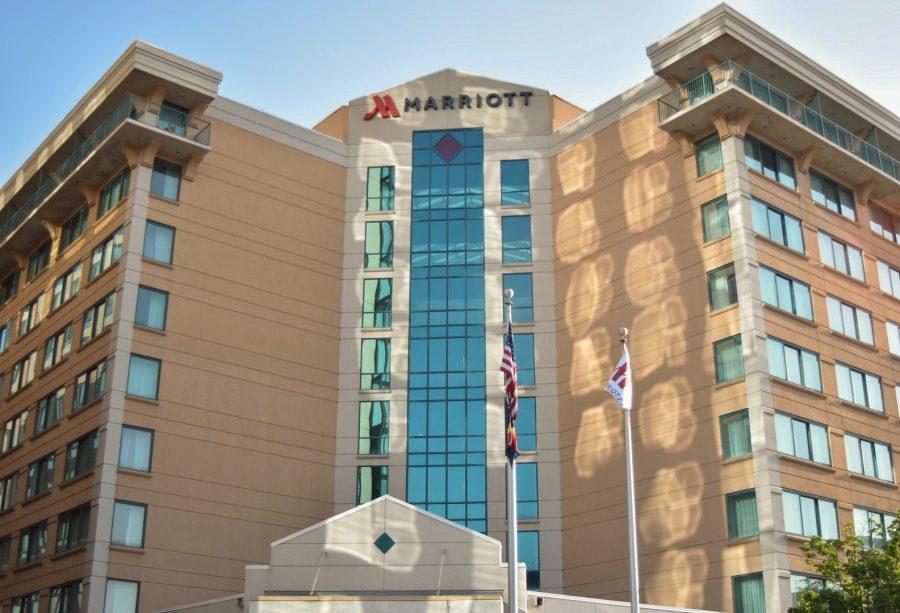GPSC wants to break up — with undergraduates and bundled fees.
The Graduate and Professional Student Council voted at Wednesday’s meeting to fight what they consider unfair fees.
Their principal focus is to fight fee increases that were proposed last year.
“”Last year they said they would implement half the increases and next year take them to the full extent,”” said Mabel Crescioni, GPSC representative for the College of Public Health. “”Our first focus should make sure that doesn’t happen.””
GPSC President Emily Connally emphasized Crescioni’s second point, to fight the structure of fees by unbundling them.
“”We need to rectify those problems last year with bundling fees,”” Connally said.
The council agreed that graduate students are grouped together with undergraduates .
“”The most frightening statement I’ve ever heard was said by the provost last week who said ‘because the undergraduates wanted it,’ and I think that’s something we need to fix,”” said Bryan Helm, GPSC representative for the College of Science. “”We’re very different and they aren’t taking that into consideration when they are making these changes at the university level. They lump us with them at their convenience … we need to stomp our foot and demand to be treated different.””
Connally also brought up breaking from the Arizona Students’ Association.
“”I think it would be legitimate that money from graduate students goes toward things that concern graduate students,”” Connally said. “”I think sometimes our voice will not be represented in ASA because they are entwined with ASUA (Associated Students of the University of Arizona).””
GPSC is in the process of surveying its students to see how they feel about campus fees. Preliminary numbers show that most students feel they are paying for services that they don’t use, most notably the Student Recreation Center.
“”I suggest we make it a user fee,”” Connally said. “”Allow graduate students to pay for one service or the other.””
One member was concerned of the effects of a program like that.
“”I would like to know what the impact of having 70 percent of the population opt out would be at the Rec … the student radio station,”” said Chase McGuire Milam, GPSC representative for the College of Education. “”Personally I think it’s important all these components are maintained regardless of if we use them as long as they are an option there.””
Connally maintained her stance that the undergraduates are the Rec Center’s main users.
“”If it’s more valuable to undergraduates, let them pay our share of the fee,”” Connally said.
Some representatives believed that the Rec Center is a nice luxury, but is not necessary to education.
“”If it’s not core to the university’s mission, then we need to pay attention to that,”” said Alison Betts, GPSC vice president. “”The Rec Center could shut down and the university would continue.””
Helm agreed with Betts’ position and offered a different solution.
“”It one of these fees does not comply with the university’s mission or our mission as graduate students, that’s where we can start attacking it,”” Helm said. “”If it does deal with the mission, it should be lumped with tuition. There are alternatives to just charging us fees, start considering us differently and bill us differently.””
Specifics on fees were tabled until the final numbers from the survey can be collected. The survey will end Nov. 8, but numbers will begin to be collected Nov. 5 for a basic report.
The College of Law and UA-South are not represented in the survey yet, but Connally expects more turn out with increased advertisement.
GPSC hopes to have a report to give to UA President Robert Shelton at the tuition retreat on Nov. 10.
“”The tuition retreat was called by Shelton for GPSC, executive board and ASUA so they can give us what they expect and their initial plans before the February meeting with ABOR (Arizona Board of Regents),”” Connally said. “”This is the first chance to discuss our impression of fees and things they’ll have to impose to keep us afloat. This is our first round.””









